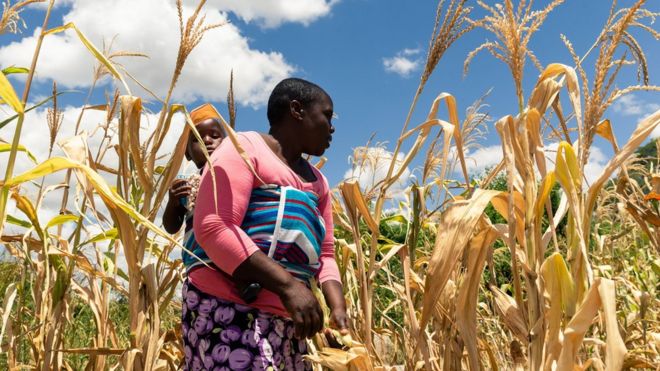 GETTY IMAGES
GETTY IMAGESZimbabwe is on the brink of man-made starvation, a UN official has warned.
More than 60% of the country’s 14 million people are considered food-insecure, according to the findings.
Hyperinflation, poverty, natural disasters and economic sanctions were among the identified causes.
Women and children were “bearing the brunt of the crisis” with 90% of children aged six months to two years not consuming enough food.
Hilal Elver, the UN’s special rapporteur on the right to food, reported her findings following an 11-day visit to the country.
“I cannot stress enough the urgency of the situation in Zimbabwe,” she said, adding that the crisis continues to worsen.
She said many of the people she met could only afford one meal a day and that most of the children she met were stunted and underweight.
“The harrowing stories I heard from resilient grandmothers, mothers or aunts desperately trying to save their children from starvation, in the midst of their daily hardships, will remain with me.”
Chronic malnutrition is endemic throughout the country, in rural and urban areas.
Droughts and erratic weather has hurt agricultural production, while rampant inflation has exacerbated the problems.
Ms Elver said the Zimbabweans she spoke to “explained that even if food is generally available in supermarkets, the erosion of their incomes combined with an inflation skyrocketing to more than 490%, made them food insecure”.
She indentified other contributing causes to the crisis, including widespread corruption and economic sanctions.
She also noted Zimbabwe was among the four highest food-insecure nations, alongside conflict-ravaged countries.
Ms Elver said her initial findings will be followed by a more detailed report next year, but called for “immediate reform”.
“Steps could be taken at the national level to respect, protect and fulfil the Government’s human rights obligations, and internationally, by putting an end to all economic sanctions,” she said. “The extraordinarily resilient people of Zimbabwe deserve no less.”
Post published in: Featured

